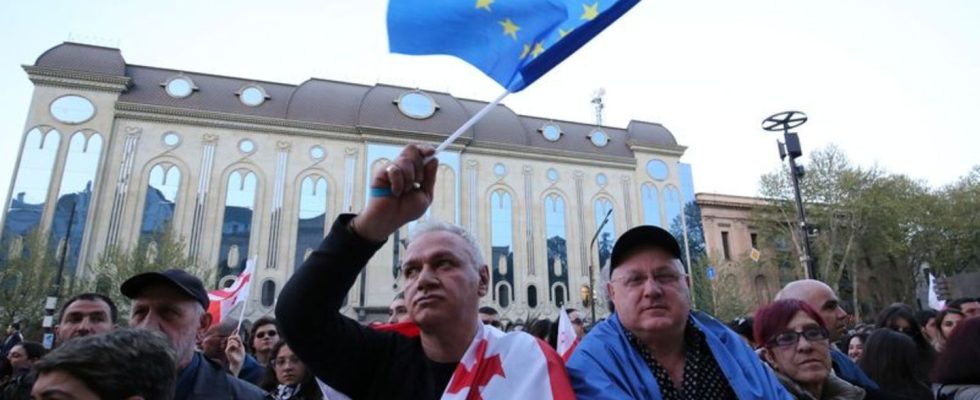South Caucasus
Georgia’s parliament pushes forward controversial law
With EU and Georgia flags: people protest against the controversial law in Tbilisi. photo
© Zurab Tsertsvadze/AP/dpa
For days, there has been a dispute over a law in Georgia, an EU candidate country. The government speaks of transparency, critics of control over civil society like in Moscow.
Despite ongoing protests, the parliament in the South Caucasus republic Georgia passed a controversial law on state control over non-governmental organizations in the first reading.
83 of the 150 MPs voted for the draft law “On the Transparency of Foreign Influence”, as a reporter from the German Press Agency in Tbilisi reported. Three readings are required for the law to be approved. Two demonstrators were arrested in front of the parliament building.
The law is based on similar rules in Russia, which is why critics in Georgia refer to it as the “Russian law”. It is planned that non-governmental organizations that receive more than 20 percent of money from abroad will disclose these financial sources. According to its own statements, the Georgian government wants to ensure more transparency and control the extent of foreign influence more closely. Many civil society and democracy promotion projects in Georgia are financed by the West, including money from the EU and the USA.
The critics’ concern
Critics fear that such a law could be misused, as in Russia, to stop these flows of money and politically persecute pro-Western forces. The pro-European Georgian President Salome Zurabishvili, who is at odds with the national-conservative government, criticized the fact that the draft law was being stuck to despite the protests. It is a provocation. This plays into the hands of the Russian strategy of destabilizing Georgia, she said.
Georgia has had EU candidate status since December 2023. There was also sharp criticism of the draft law from Brussels, which the government still wants to push through before the parliamentary elections in the fall. Last year, the ruling Georgian Dream party shelved the bill after mass protests.

